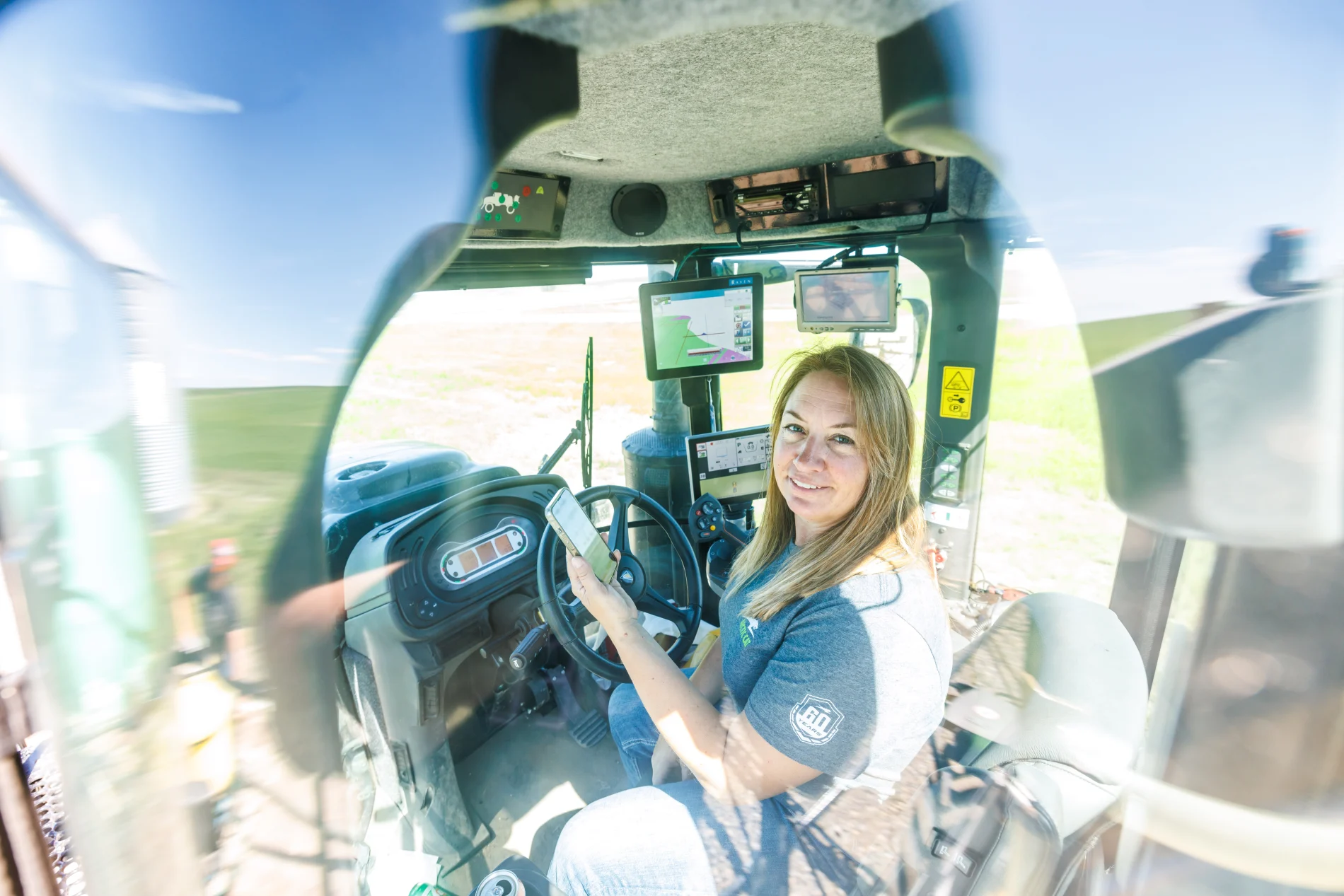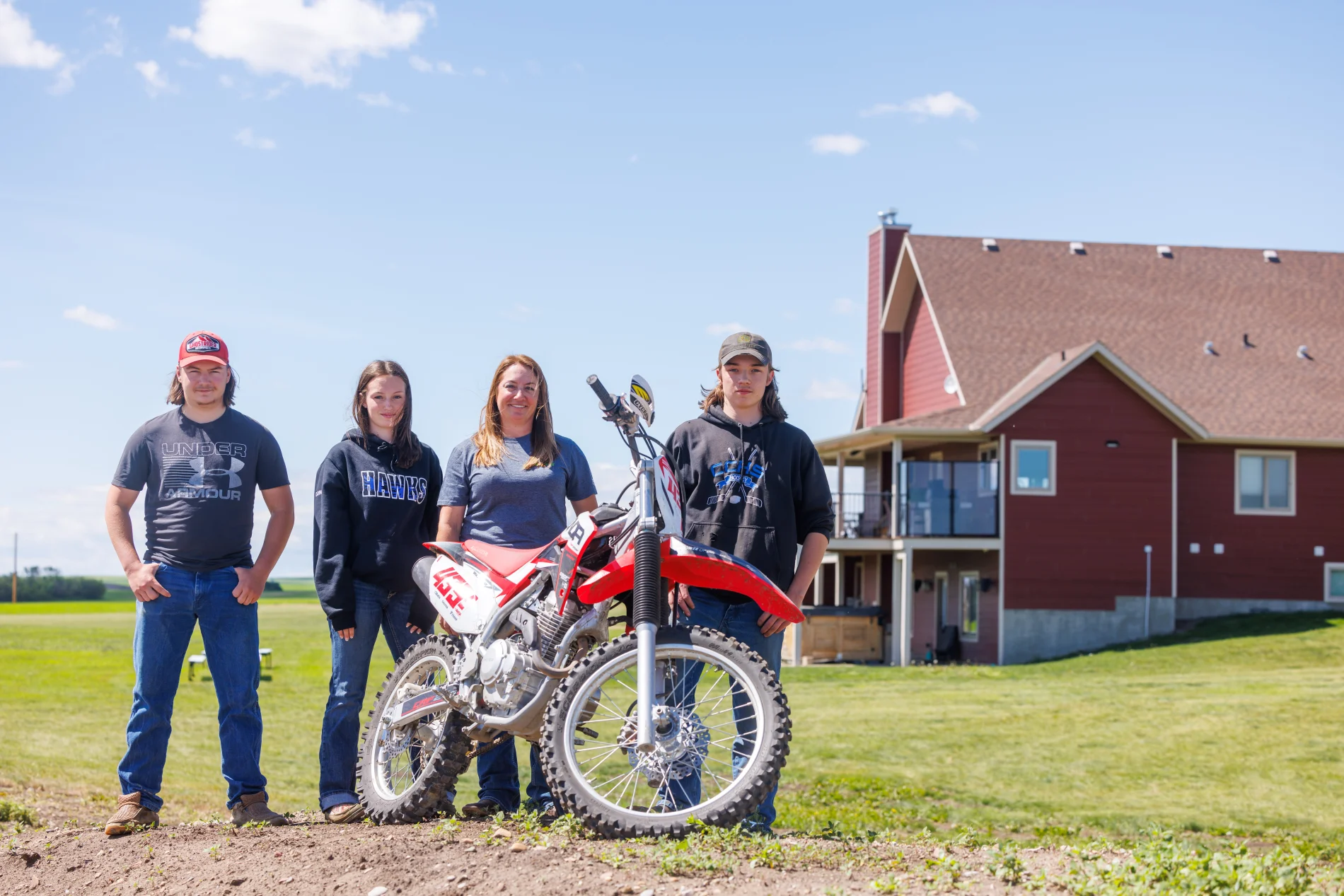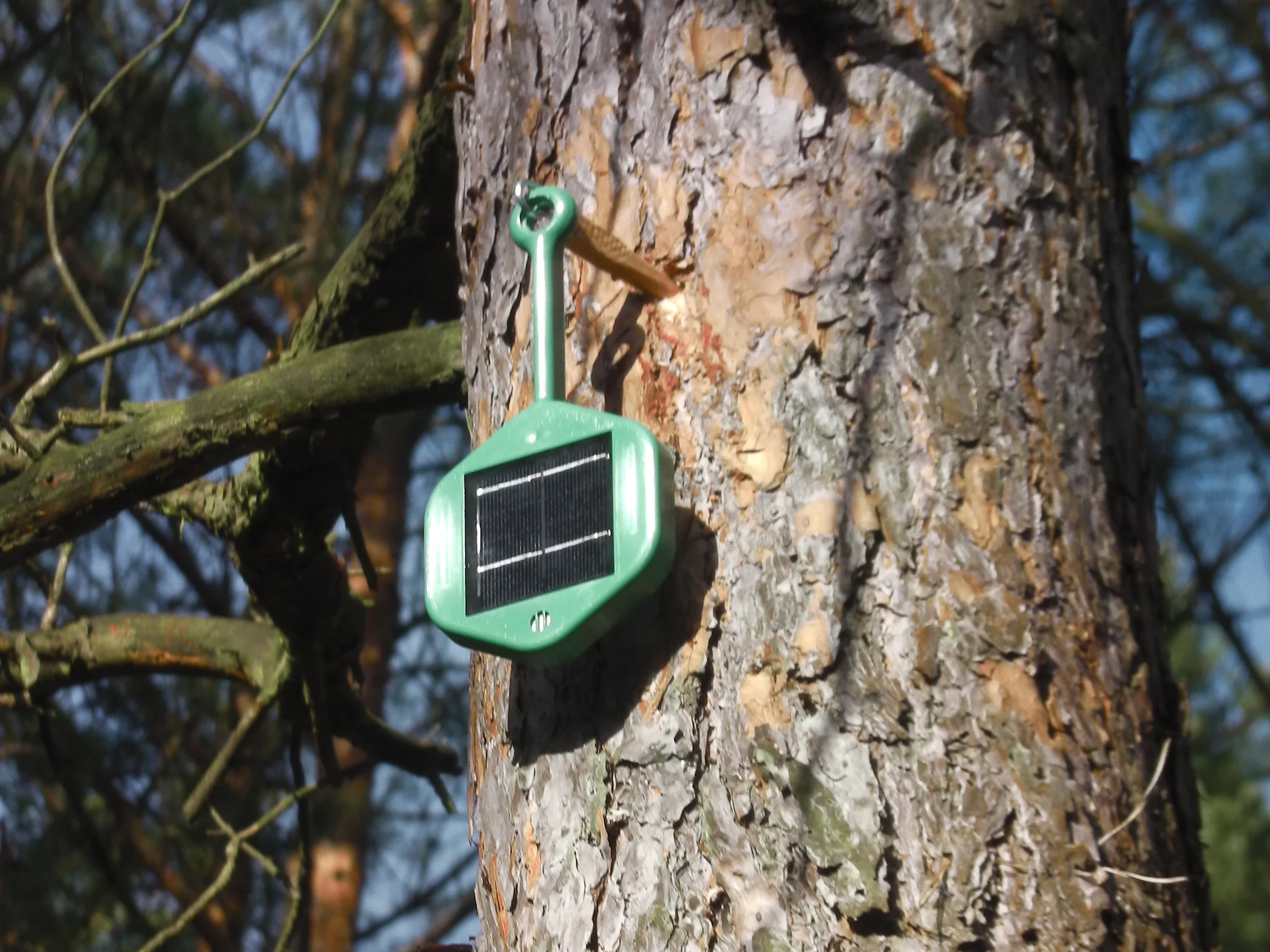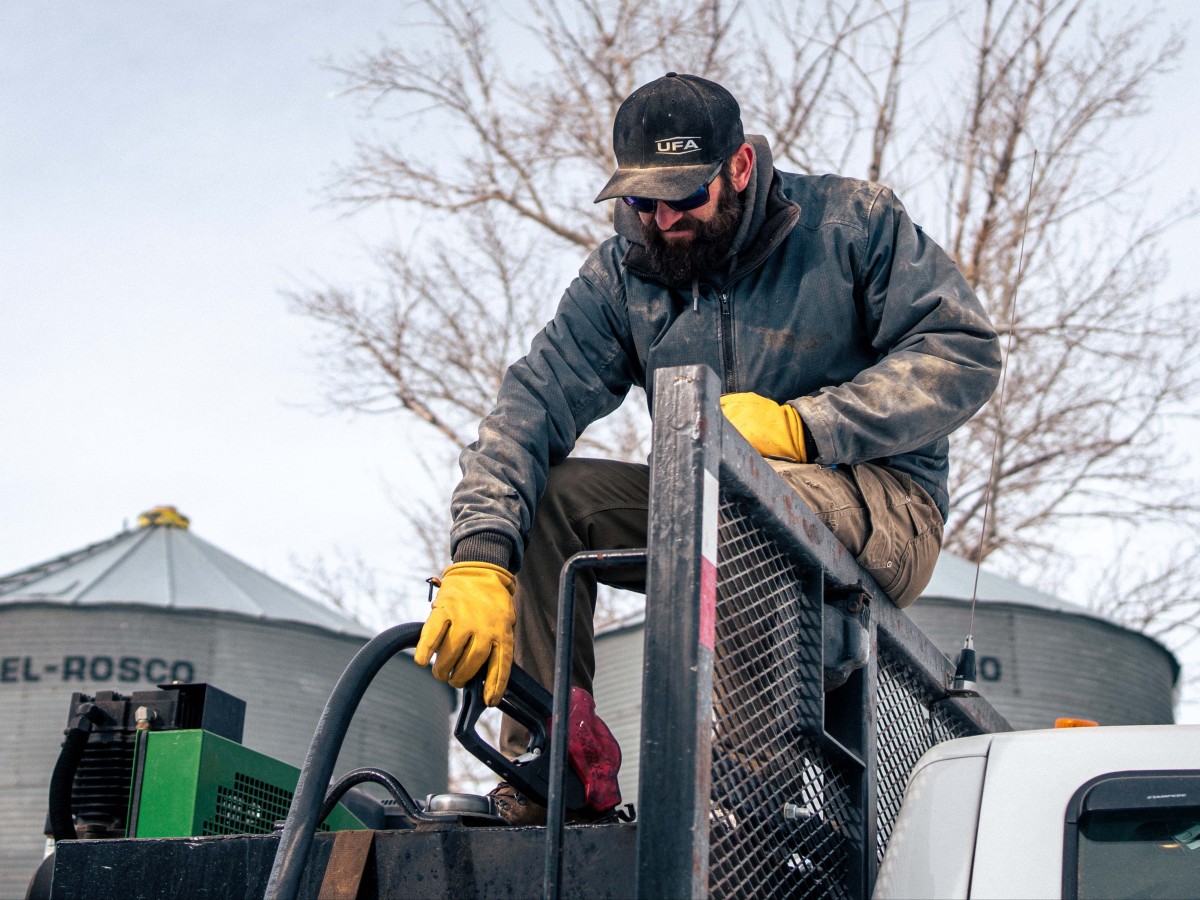Tech innovation
Digitizing the family farm to feed the world
Jul 11, 2022
For 115 years, Bobby Joe Donovan’s family has grown and harvested grain on this farm near Mossleigh, Alta. Today, digital technology is rapidly transforming the industry, enabling Donovan, pictured, to make more informed decisions and achieve greater yields. NEIL ZELLER PHOTOGRAPHY
As spring rains give way to summer, Bobby Joe Donovan is deep into another planting season on Wintara Farms, about 90 kilometres southeast of Calgary.
Here on the 2,800-acre parcel of land, where the foothills unroll into flat prairie, Donovan will grow canola, wheat, barley and peas — just as generations have before her.
But, where previous generations of farmers relied on notebooks tucked into their pockets to keep track of the amounts of seed sown or how much fertilizer was added to a field, Donovan uses an app to log that information on her smartphone — all from the seat of her tractor.
From data management and analytics to real-time tracking of essential crop, weather and fertilizer information, digital technology is rapidly transforming farming in Canada and around the world. The result is a stronger and more nutritious food supply, improved cross-industry collaboration and greater efficiencies and profit across the food value chain — crucial to addressing global food security challenges and future-proofing family farms like Wintara for generations to come.
“Farmers are doing their job. We have a lot of people in this world, a lot of mouths to feed,” says Donovan. “Using technology in farming is about becoming more efficient.”
A strong, reliable network, which ensures that data is sent, saved and managed in real time from the field or the farmhouse, is an essential part of that equation.
Strong digital policy is missing from Canada’s climate strategy, and presents an opportunity to lead on global climate action.
In May, TELUS announced a $17-billion investment in network infrastructure, operations and spectrum throughout Alberta over the next four years — building off the $55 billion it has already spent over the last two decades connecting the province’s communities and businesses through world-leading wireless
5G
and TELUS PureFibre
networks. The funds are part of a $70-billion overall investment across Canada between now and 2026.The investment ties into the company’s mission to use technology to improve the lives of Canadians. This is of particular importance to
TELUS Agriculture
, a global-leading provider of technology and data insights focused on helping to enable a better flow of information across the agriculture, food and consumer goods industries. The result? Farmers are able to increase productivity and profitability, ensuring their fields are producing the largest possible yields of grain and pulses.
From data management and analytics to real-time tracking of essential crop, weather and fertilizer information, Donovan can manage the family farm from the seat of her tractor. NEIL ZELLER PHOTOGRAPHY
‘When you have the opportunity to plant, you have to be ready’
For 115 years, Donovan’s family has grown and harvested grain on this farm near Mossleigh, Alta., passing it from one generation to the next. An accountant by trade, Donovan began managing the farm with her husband, Eric, in 1999, but had to take the reins completely when Eric died in a plane crash in 2012.
Together, with her three children — Scott, 20, Drew, 16, and Charlotte, 14 — and a small handful of staff, she is carrying on the Wintara Farm legacy, keeping it prosperous and productive for the next generation.
To ensure that happens, the Donovans first turned to
Decisive Farming
in 1997, becoming the company’s first client on the south side of Bow River.The decision was founded on wanting to work with an agronomist (an expert in soil management and crop production). Decisive Farming was acquired by TELUS Agriculture in 2019 and now offers more technology and services — all on a single, connected platform.
Through TELUS, Donovan has access to data management and analytics, along with variable rate technology, a tool that allows for different rates of application for fertilizer and seed across a field. She can also consult a weather station specific to Wintara.
“It’s amazing how much the weather can change, even from field to field,” she says, noting that even slight variations in the amount of rainfall on one area impacts crop-management decisions.
Using data helps Donovan make more informed decisions around applying the correct inputs of seed, water and fertilizer. That, in turn, helps to achieve greater yields — every farmer’s goal.
Critically, it reduces the guesswork farmers have historically faced — so when Mother Nature is ready, so is she.
“We can’t control the weather. When you have the opportunity to plant, you have to be ready and jump on it,” she says. “Having this technology allows you to pre-plan things, so you can be ready for when it’s go time.”
By digitizing the farm, Donovan also has a reliable record of everything from the weather and seeding dates (necessary for crop insurance) to moisture levels, how much fertilizer was applied and other kernels of vital information.
And through the TELUS
Croptivity
app, she can tightly track the inventory in her grain bins: literally how much is in the massive bins on the farm. In addition, Donovan can access grain market expertise to ensure her family is putting their grain out for sale at the best possible time. The data also ensures the farm is selling their grain at a price that takes into account production costs.And that means increased peace of mind in a traditionally risky industry.
“So it’s not just a way of life. You can make a profit,” says Donovan.
It’s all part of ensuring the family farm continues for generations to come.
“We can teach the new generation of farmers what we learned from the generations before us, and they’re going to teach us what’s coming,” she says.
Of course, with her kids already involved in the business, she anticipates it won’t be long before she hands over the reins completely. She just hopes they’ll still let her out into the fields after she retires.
“I’ll come back and run the combine,” she says.

Together, with her three children — Scott, 20, Drew, 16, and Charlotte, 14 — and a small handful of staff, Donovan is carrying on the Wintara Farm legacy, keeping it prosperous and productive for the next generation. NEIL ZELLER PHOTOGRAPHY

Help protect the environment
Better digital policies will support our collective journey to net-zero.
Get informed


